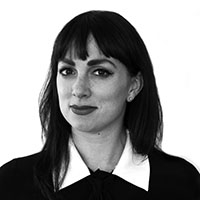When news that an all-female reimagining of William Golding’s 1954 novel Lord of the Flies would be made into a film, the vocal masses reacted with incredulity.
There are plenty of reasons to find the Lady of the Flies concept worthy of at least an eyeroll.
Some have taken issue with the project’s writers, Scott McGehee and David Siegel. The two have teamed up before on a novel-to-film adaptation; they co-directed 2012’s What Maisie Knew, which was based on an 1897 Henry James novel of the same name.
The film starred Julianne Moore and was written by two women. It was well-received by critics and audiences, but none of that matters in this cultural moment. McGehee and Siegel are both men.
It’s not that men can’t write; plenty of men can. It’s just that, in the eyes of one strain of detractors, a project about the unique evil that lurks in the hearts of women, and how that evil can cause good people to devolve into savagery, might be better brought to life by one of the many talented female screenwriters available for hire. Some people critical of this project wish that one of those people, invisible and unquantifiable, had been selected.
Others were quick to point out that it’s impossible to be faithful to the source material without being faithful to the gender of its characters.
Lord of the Flies is a postwar allegory starring boys. It’s about metastatic maleness and how the two world wars laid bare that the natural state of men is to fight until everything is destroyed, including their own humanity. Of men. The book can’t be about girls, because it’s about boys, and it can’t be about women, because it’s about children.
These first two points are speculative, but they’re interesting points to raise. Women should have a chance to write about the nuances of womanhood. The book is about boys. Fair, and fair.
Some detractors have gone on to further point out that if women were put in a Lord of the Flies situation, if they were put on an island with no rules and no resources, they would live in a world of peace and understanding, and nothing would ever go wrong. A women—or girls—only Lord of the Flies would be a placid matriarchy where things ran smoothly, because women are wonderful and great at cooperating and would never bully a fat person or convince each other to believe in an invisible beast that could kill all of them or divide into warring tribes. And this is where I take issue with the takes on a movie that doesn’t exist yet.
This is a bad opinion.
Pretending that an all-female society would be objectively superior to a male-dominated one is a fun thought exercise, but there are plenty of examples that challenge that assumption. Women are bad, too; it’s just that when they are terrible, they tend to be terrible in a different way than men are terrible. A Lady of the Flies, if you will, could exist, and has existed in pop culture. It’s different from the boy-informed Lord of the Flies of popular imagination.
When women establish their own dystopias in the popular imagination, they do it in the context of existing power structures. They are the high-school emotional terrorists that inspired Heathers or Mean Girls or Jawbreaker, ultimately beholden to their teacher or principal or parents. They are the Real Housewives of anytown, or Desperate Housewives, or Lady Macbeths, in the positions they’re in because of who they chose to marry, or who their father is. Their power thrives on the world around them, the world that subjugates others like them.
On a personal level, to deny women the agency to be total shitheads, to angel-ize a portion of the population is condescending in a way that feels dehumanizing. I am a person, women are people. People are terrible. We are also terrible. We can be as rude, or mean, or corruptible, or brutal, or savage as men can. That’s not worth celebrating, but it shouldn’t be denied, either.






